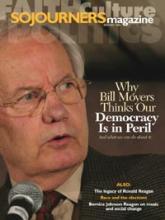We charged into the 21st century confident that we were ushering in the most democratic era in human history. But we are now seeing a worldwide backlash against the technologies and economic systems that further polarize the fortunes of the wealthy and the poor. To avoid a massive social uprisingand the wave of terrorism it spawnswe must make a stronger case for democracy.
Consider Latin America. More than half of Latin Americans would support the replacement of a democratic government with an "authoritarian" one if the strong arm of government could produce greater economic benefits, according to a United Nations report released this spring.
Compiled by the U.N. Development Programme, the report ran opinion surveys involving more than 18,000 citizens in 18 nations and conducted lengthy interviews with 231 political, economic, and cultural leaders, including 41 former presidents and vice presidents.
The report attributes the loss of confidence in elected governments to slow economic growth, social inequality, and ineffective legal systems. Despite advances in human rights from the dark days of dictatorships, Latin Americans still cannot expect equal treatment before the law due to widespread corruption.
The data confirms that elections and free-market economic reforms alone cannot bring democracy to life. During my days directing an economic development agency in Latin America, I came to realize that a few fundamental building blocks needed to be in place in order to nurture democracy. First and foremost, citizens need to have the wherewithal to make a livelihood.
Read the Full Article
